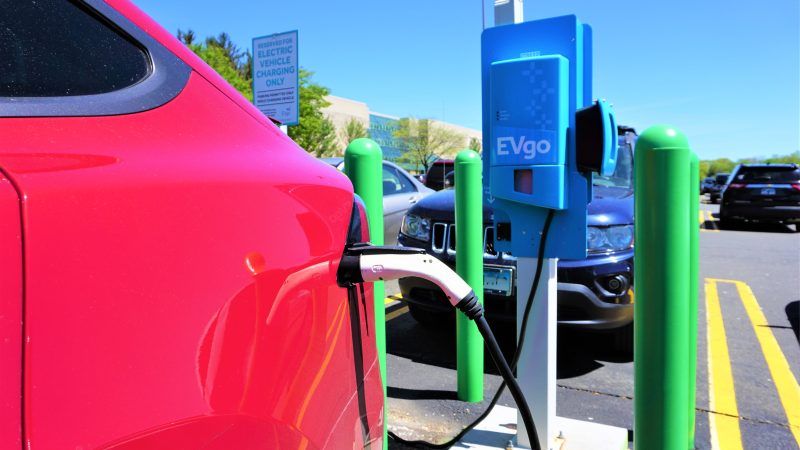Philadelphia Relies on Private Sector Chargers To Charge City-Owned E.V.s
Motorists complain about long lines at charging stations as civil servants queue up in city-owned electric vehicles.

Last week, Philadelphia's NBC10 reported that city-owned electric vehicles frequently queue up at public charging stations along with everyday motorists, causing longer wait times for all. Reporters visited charging stations numerous times during work hours and routinely found city employees either waiting in line for a charger or waiting for their vehicle to finish charging, which can take up to an hour.
Some city employees told NBC10's Claudia Vargas that they used the downtime to catch up on paperwork, while others sat in their cars apparently watching videos on their phones. Inspectors with Philadelphia's Department of Licenses and Inspections (L&I) spend their workdays going to buildings and job sites, and any time spent waiting to charge is wasted.
Motorists complained about having to wait in line along with workers drawing a city salary, with one noting that city vehicles should "have a way to charge overnight in like their own facility."
"It turns out they do," Vargas reported. Philadelphia has 107 chargers to serve its fleet of 261 electric vehicles, but the chargers are poorly apportioned. NBC10 found that many of the city's chargers are located at city-owned repair facilities, while others are installed at police departments and prison complexes that have no electric vehicles.
L&I has 115 E.V.s—more than any other department in the city—yet it has no chargers at any of its buildings or facilities. Instead, the city contracts with EVgo, a private company that operates charging stations across the country. The result: city employees spending a portion of each workday sitting in their cars, making other motorists wait longer.
Worse, charging during the workday means the city pays peak charging rates. If the fleet were able to charge overnight at city facilities, rates would be lower as there is less demand for electricity.
While the report is bad news for Philadelphia, it presents a broader lesson as well. As Congress and the Biden administration apportion billions of dollars to build out the nation's E.V. charging infrastructure, it's worth remembering how bad central planners are at distributing resources. Philadelphia has more than enough chargers to service its fleet of E.V.s, but none of them are in the right places. Instead, the city relies on the private sector to make up for its own shortcomings.


Show Comments (35)